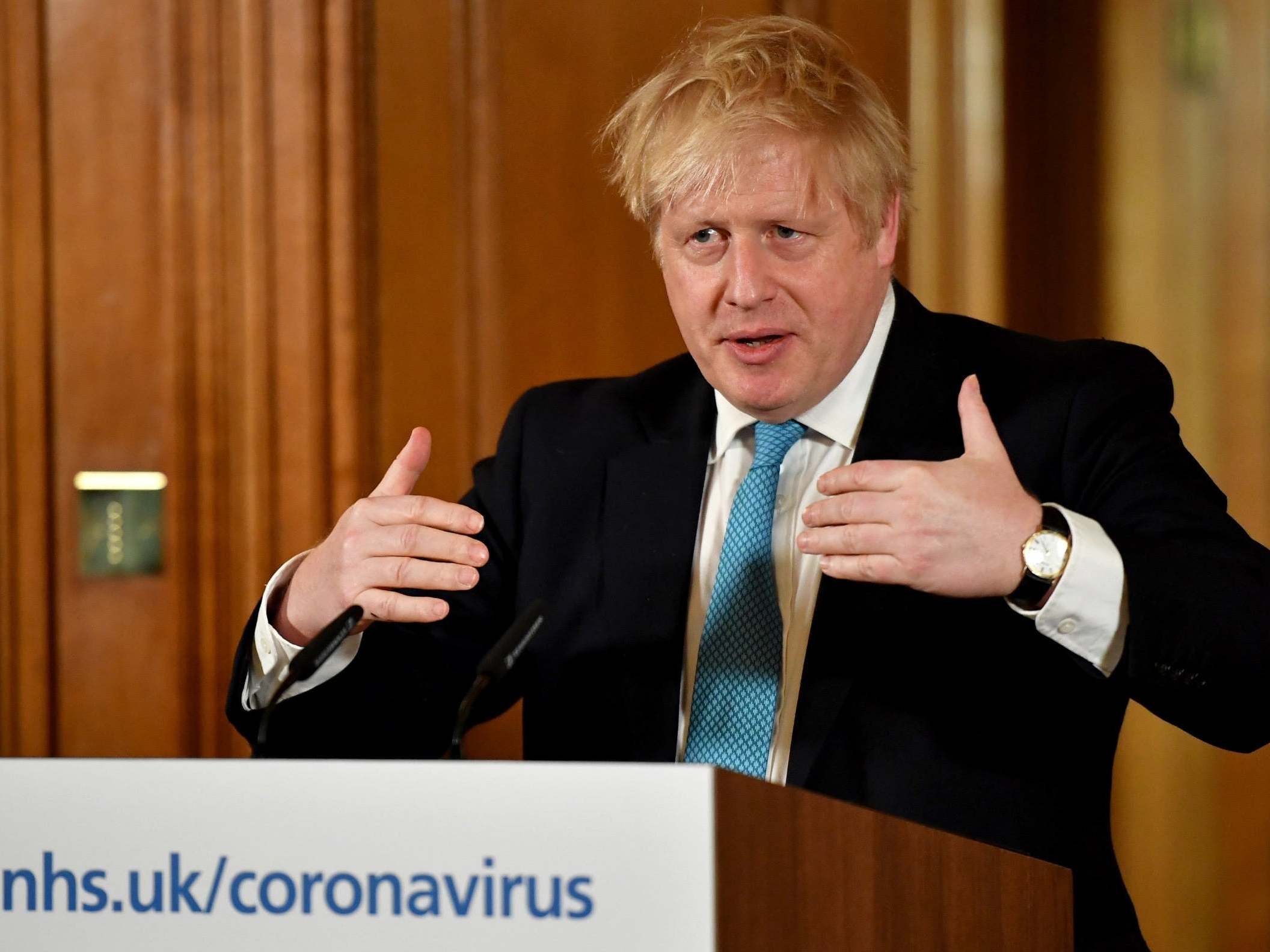Boris Johnson won a landslide election victory on ideas that his people no longer want
This most tax-averse and libertarian of politicians is now being forced into a decade of tax rises to pay for increased state activism, writes Andrew Woodcock


After weeks of stories about the supply of personal protective equipment (PPE) and testing in care homes, political correspondents sequestered in their spare rooms and home offices are grasping greedily at the first hints of an end to the lockdown by turning their thoughts to their favourite subject: what does this mean for Westminster?
MPs returning to the Commons once social distancing measures are lifted will be returning to an utterly transformed political landscape.
Following months of NHS staff and care workers being elevated to national heroes; the state bailing out private businesses and paying workers to stay at home; borrowing on a scale not seen since the Second World War and the prime minister hailing the contribution of migrants to a system “built on love”, can Boris Johnson’s government go back to the agenda which delivered his December election victory?
If you want a stark reminder of the disparity between then and now, look back at Johnson’s first public comment on coronavirus. In a triumphalist speech in Greenwich in February, the prime minister vowed that “panic” over the virus would not deflect the UK from its post-Brexit destiny as a global leader of free trade. In words which now ring very hollow, he warned of the risk that “new diseases such as coronavirus will trigger a panic and a desire for market segregation that go beyond what is medically rational to the point of doing real and unnecessary economic damage”. At that point, he said, the UK would be ready to “take off its Clark Kent spectacles and leap into the phone booth and emerge with its cloak flowing as the supercharged champion of the right of the populations of the earth to buy and sell freely among each other”.
That’s not quite how it worked out.
Suddenly, a political philosophy built on a breezy dismissal of the worth of “experts”, disdain for international cooperation, exclusion of “low-skilled” migrants on the basis of earning power and ripping up “red tape” on public health and the environment seems not to chime with the zeitgeist quite as well. The Dominic Cummings-inspired war of attrition on “establishment” institutions such as the civil service and BBC no longer feel quite so relevant.
The headlong rush to tear up trade relations with the EU at the end of 2020 looks even more reckless in a time of deep recession than it did when Treasury warnings of a 9 per cent cut in GDP from a no-deal Brexit were brushed aside as “Project Fear”. Johnson’s planned pivot to closer trade relations with the US and China looks questionable in the light of Donald Trump’s erratic handling of coronavirus and deep suspicions over Beijing’s trustworthiness.
Rather than consigning austerity to the past in a multibillion-pound frenzy of spending on bridges and railways and roads – as heralded in Rishi Sunak’s March budget – Johnson will now be faced with the dilemma of how to restart a shrunken economy and repay state debts even larger than those incurred in the financial crisis of 2008.
How much of his investment strategy will survive the pandemic is one question. Another is how he will pay for the recovery.
With voter appreciation of the NHS and social care at previously unseen highs, the PM will be under intense pressure for better funding and higher salaries in the public sector, making a fresh round of cuts to pay down debt all but unthinkable. Which points towards this most tax-averse and libertarian of prime ministers being forced into a decade of tax rises to pay for increased state activism and “nanny state” regulation.
He will be faced by a new Labour leader in Keir Starmer, who finds ideas long cherished by elements in his party – a universal basic income, public ownership of key industries – discussed seriously as never before.
Two months ago in Greenwich, a prime minister in his pomp looked set for a decade built in his own bullish, optimistic, expansionist, devil-may-care image. Now it seems that a humble virus in the gut of a bat in a Chinese market may be set to achieve a shift in British politics of a kind which Jeremy Corbyn could only dream of after a lifetime of campaigning.
Yours,
Andrew Woodcock
Political editor
Join our commenting forum
Join thought-provoking conversations, follow other Independent readers and see their replies
Comments
Bookmark popover
Removed from bookmarks